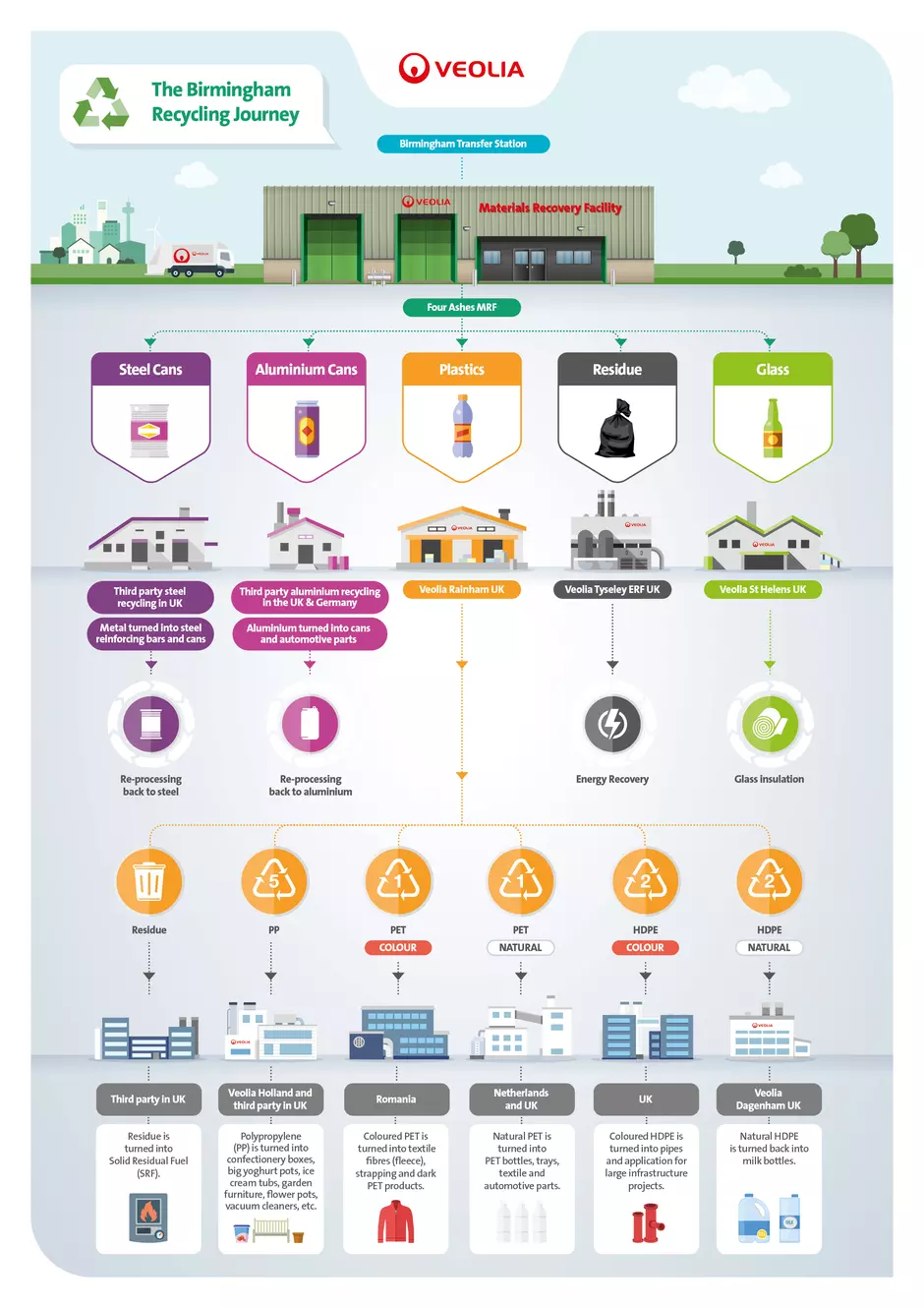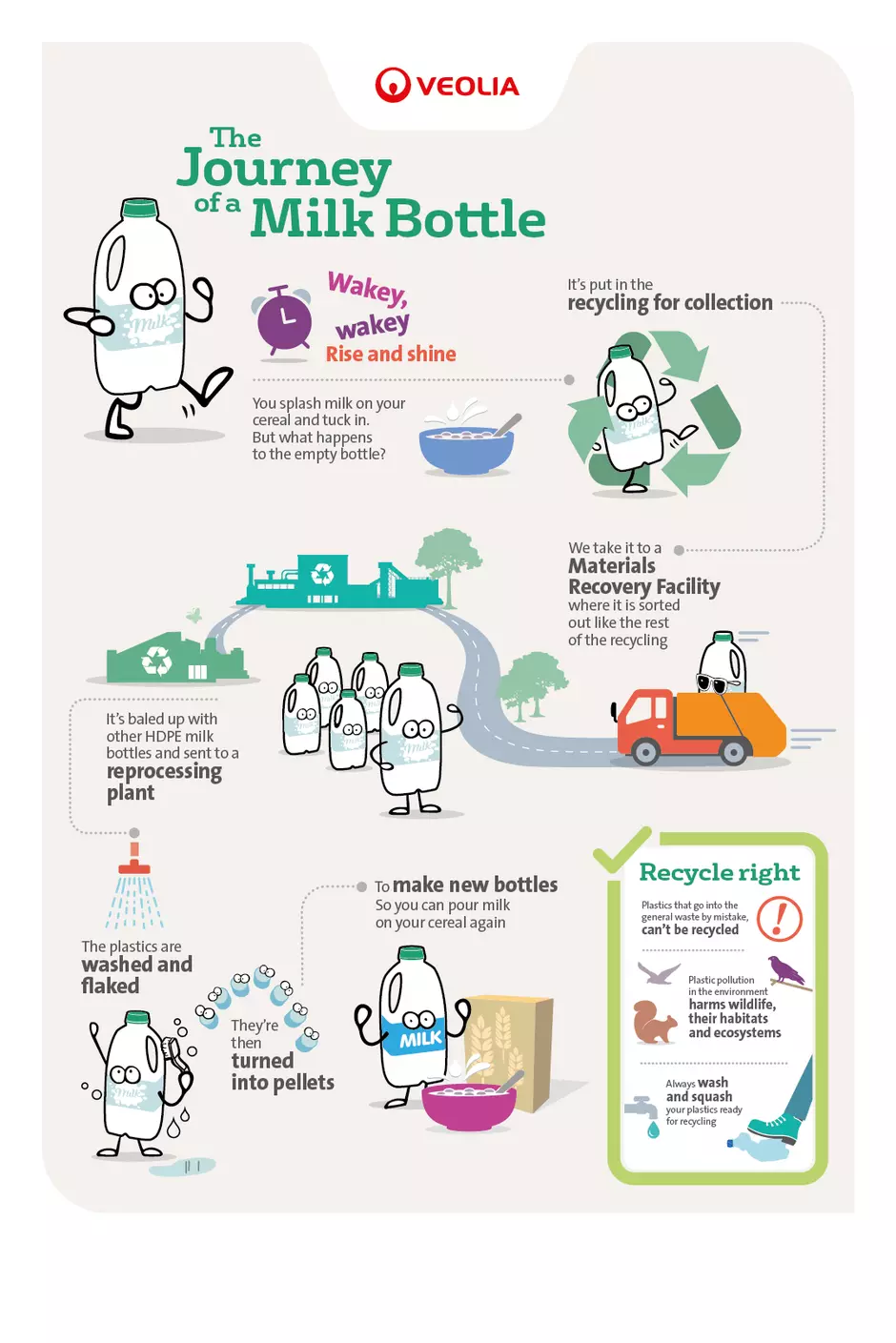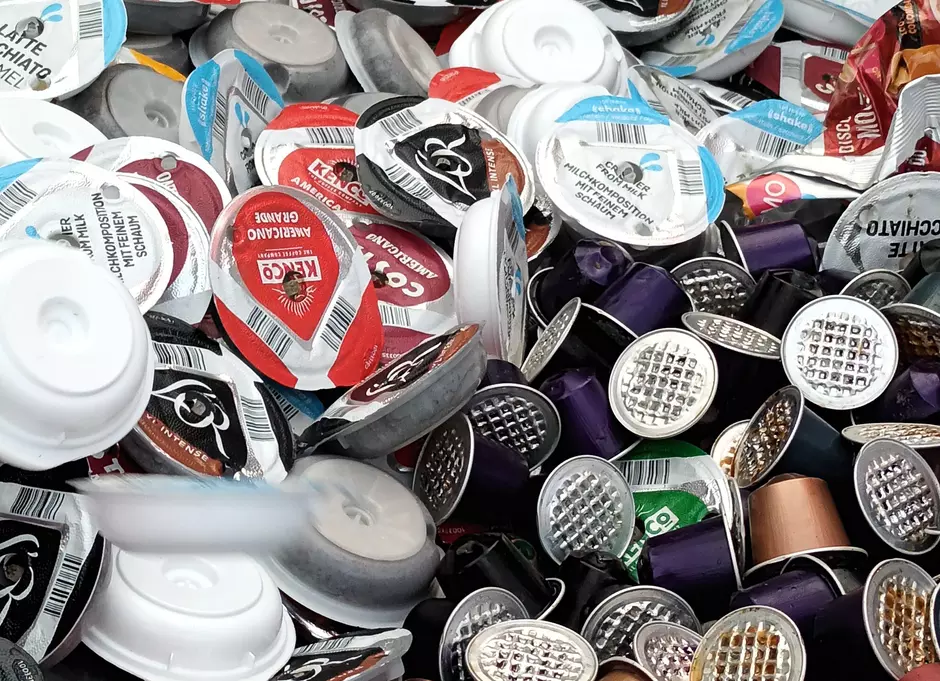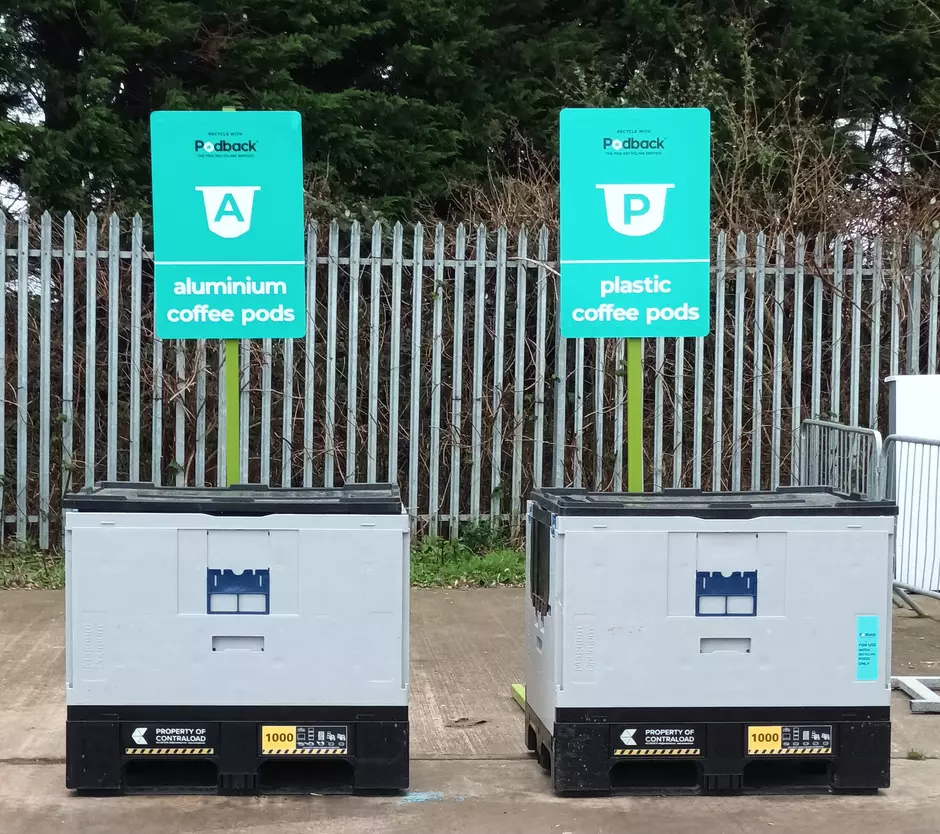Ever wondered what happens to Birmingham's waste and recycling once it leaves the kerbside and household recycling centres?
Take a look at the videos and infographics below to learn about how Veolia processes the city's recycling and waste.

What happens to my recycling?
The materials from your recycling bin (excluding paper and card from the paper pod) go to a Material Recovery Facility (MRF) to be sorted and separated so they can be sent to reprocessors to be turned into new products. The infographic shows Birmingham’s journey of recycling that is processed by Veolia.
What happens at a MRF?
Ever wondered how the recycling is sorted at a MRF after it leaves the kerbside and Household Recycling Centres? Here's a video to explain how the materials are separated before they move on to reprocessors to be turned into something new.

Natural HDPE is one of the most commonly used plastics and one of its uses is to make milk bottle. Here is the recycling journey of the milk bottle.
How are coffee pods recycled?
There are separate containers for aluminium and plastic pods at each HRC (household recycling centre). Used pods do not need to be emptied of coffee before recycling, and they can be tipped loose into the relevant Podback recycling containers. Please be mindful of depositing the correct coffee pods in the containers labelled 'plastic' and 'aluminium'.

From the HRCs Podback will take the used coffee pods to be processed at specialist recycling facilities in the UK. Aluminium pods are recycled in Cheshire, plastic pods are recycled in Yorkshire. The coffee grounds are removed before the aluminium and plastic pods and are recycled into new products including drinks cans, car components, construction products, etc. The coffee grounds go through an anaerobic digestion process to be turned into renewable energy (biogas) and soil improver.



